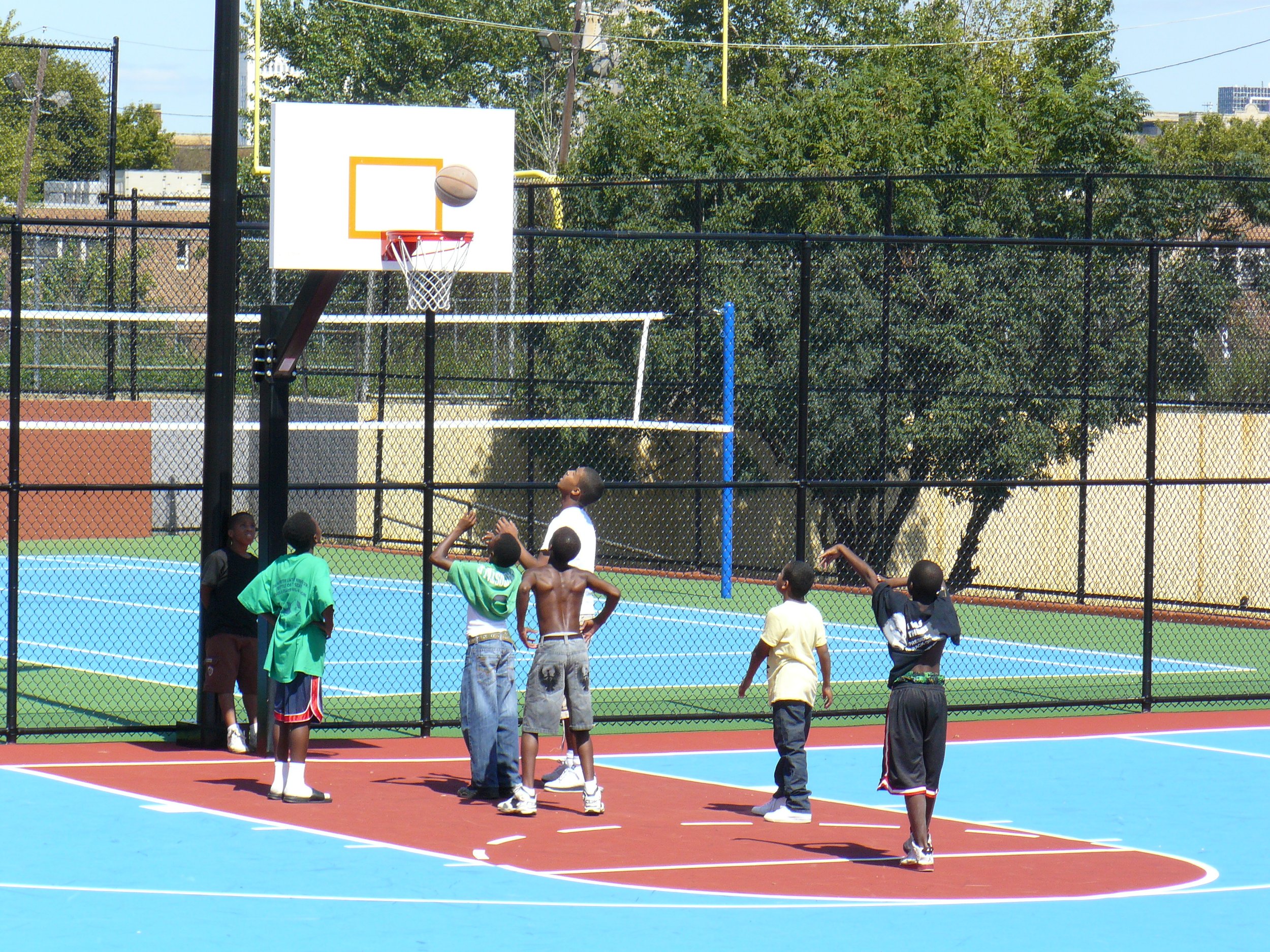Benefits of the Newark Park System
Health and Well-Being
Parks provide a venue for outdoor recreation and physical activity. They give people places to walk, bike, run, and participate in other outdoor activities for free, or at a low cost. Having accessible recreation opportunities encourages people to be more physically active, which provides many long-term health benefits, including lower obesity rates, improved heart health, and lower blood sugar levels. Outdoor engagement not only improves physical health, but also mental health. Urban residents living near parks have reported lower levels of anxiety and depression than those living in park deficient areas.
Social Connection
Parks provide places for people to relax with friends and family and meet their neighbors. Parks departments and community-based organizations provide structured group activities such as community gardening and seasonal celebrations that bring residents together. Parks offer a space for people to have social gatherings and make new friends. They have even been shown to foster bridgebuilding between different racial and ethnic groups. Spending time outdoors and strengthening social connections leads to a stronger, more resilient community.
Economic Benefits
Parks provide economic benefits and opportunities for cities. Local businesses near parks benefit from increased foot traffic and visibility, while park operations generate jobs in construction, maintenance, and programming. Parks also support the local economy through contracts with small businesses and vendors. Special events like farmers' markets, concerts, and festivals draw visitors who spend money at nearby hotels, restaurants, and shops—fueling Newark’s broader economy. In addition to these direct economic impacts, parks provide long-term cost savings through environmental services like stormwater management and air purification.
Environmental and Climate Resilience
Newark’s parks play a critical role in protecting the environment and reducing the city’s climate risk. Trees and green spaces absorb carbon dioxide, helping to mitigate climate change and reduce the urban heat island effect. Vegetation and soil also manage stormwater by absorbing rain, decreasing the risk of street and home flooding.
Cleaner air is another environmental benefit. Park trees filter out pollutants such as particulate matter, improving respiratory health and reducing rates of asthma and lung disease—conditions that disproportionately affect urban residents. These environmental improvements lead to reduced healthcare costs and a higher quality of life for Newark residents. For more information on climate risks in Newark, read about the recent Vulnerability Assessment here: https://issuu.com/wrtdesign/docs/appendixii_vulnerability)





